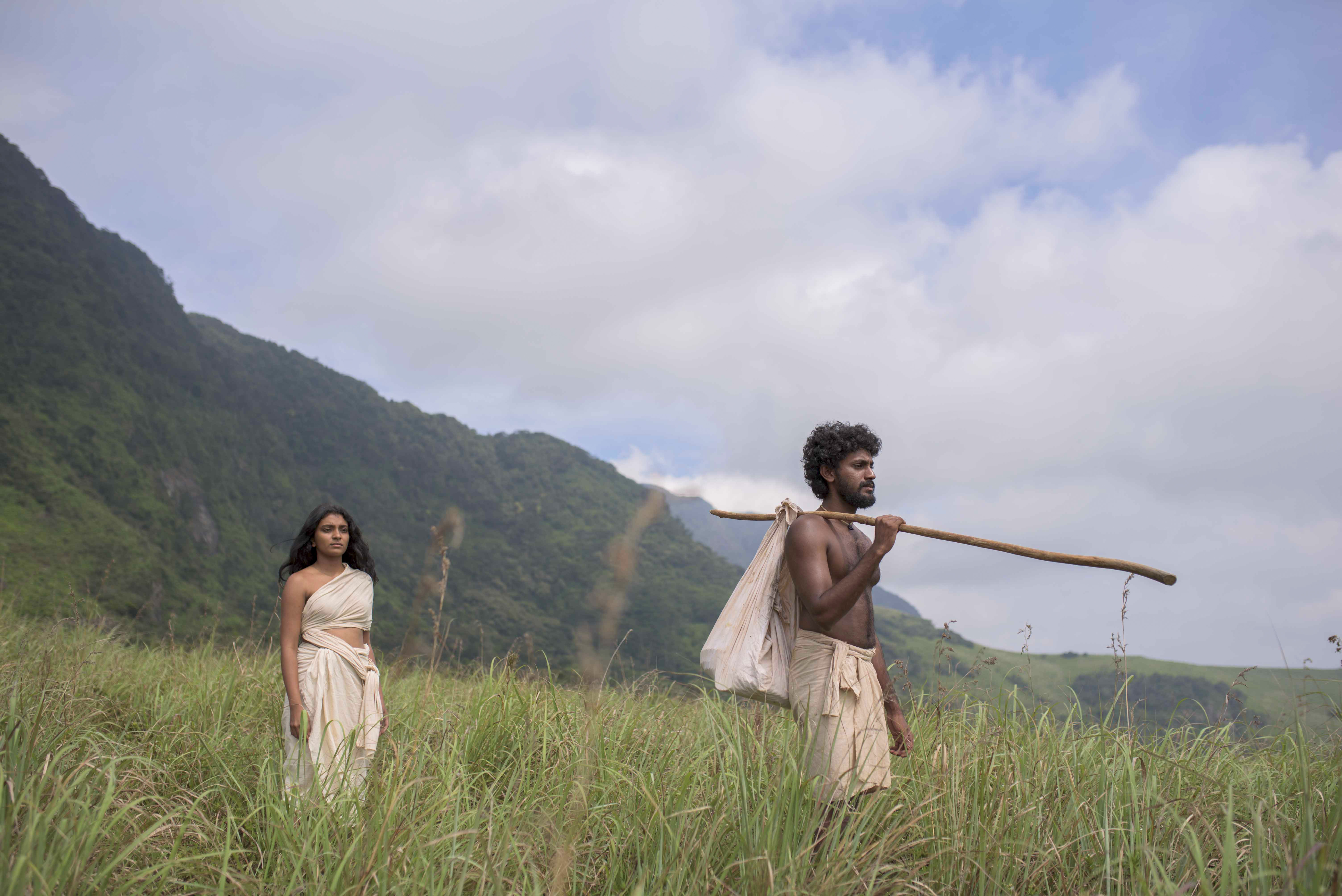Exploring The Creative Behind-The-Scenes of Sri Lankan 2023 Box-Office Hit Gaadi: Children Of The Sun
Exploring The Creative Behind-The-Scenes of Sri Lankan 2023 Box-Office Hit Gaadi: Children Of The Sun
Gaadi: Children Of The Sun, the Sri Lankan historical drama about the struggle for identity that has travelled from festival to festival, starting with its World Premiere at the 2019 Busan International Film Festival, to clinching the UNESCO Award at the Asia Pacific Screen Awards in 2021. Finally, in 2023, it headed back home to Sri Lanka to become a local box-office hit and now, CinemaWorld is taking it to the international stage once again on our channel for this month’s Asian Filmmaker Spotlight.
Set in the vast lands of 1814 Ceylon, the film follows the downfall of a noblewoman, Tikiri, who upon losing her family and home, is then forced to marry a lower caste, Rodiya man. As he tries to integrate her with his community, she discovers more about herself and the world than she had ever known.
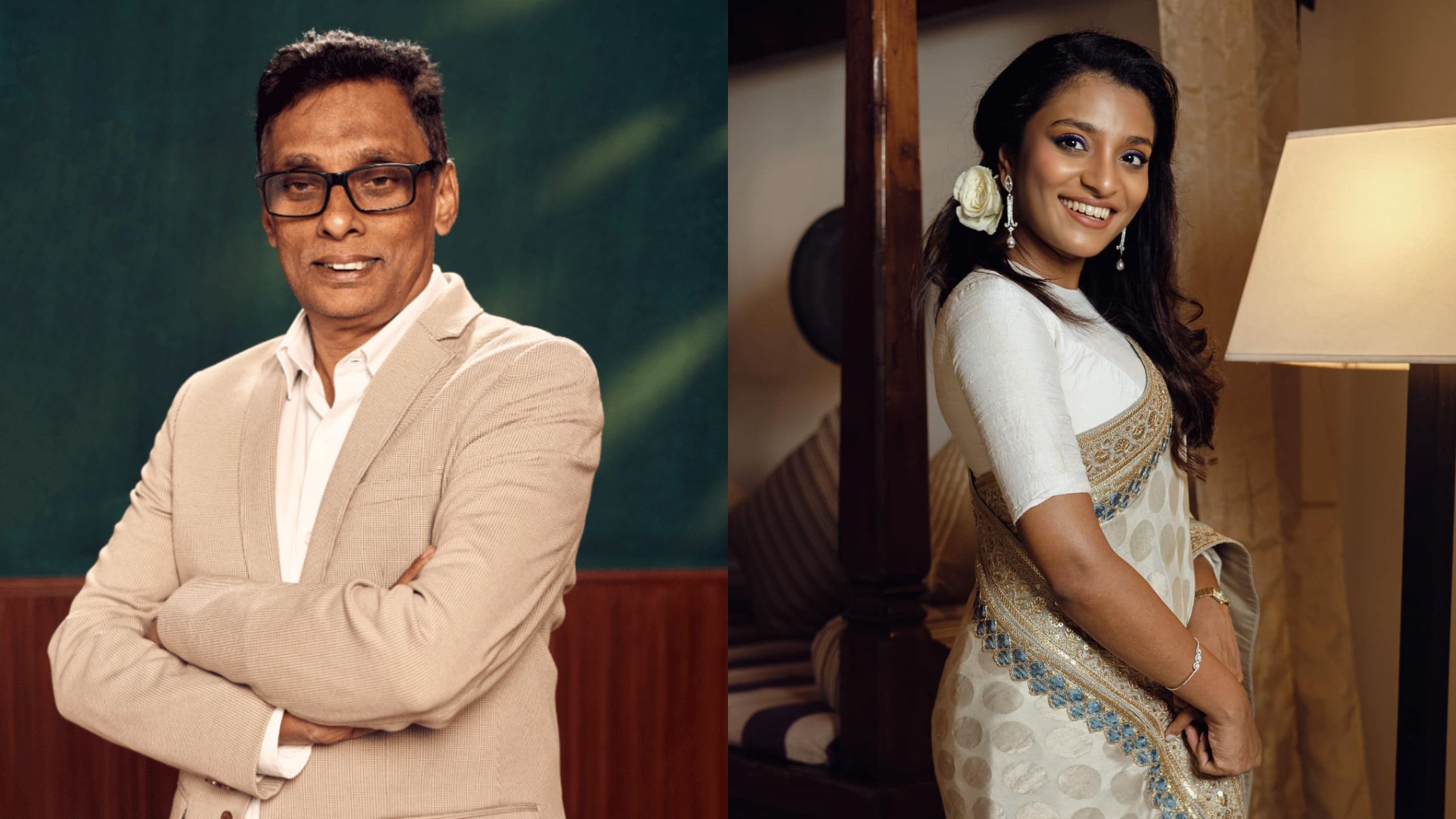
Together with the film’s lead actress Dinara Punchihewa (Recipient of Forbes 30 Under 30 Asia: Entertainment & Sports), director Prasanna Vithanage (also the director Paradise, winner of the Kim Jiseok Award for the Best Film at Busan International Film Festival 2023) joins us on the channel for an exclusive interview. Hear more about the creative journey that both of them took with Gaadi: Children Of The Sun.
The Interview
The Inspiration Behind Gaadi
CinemaWorld: Mr Prasanna, we wanted to know what was your initial inspiration behind wanting to create Gaadi and whether there was any event or story in particular that sparked the initial idea for the film?
Vithanage: I have always been inspired by men and women who stood for their convictions and fought with the system. There was a custom during the Kandyan period when noblemen conspired against the King — at the time it was Sri Vikrama Rajasinha — that if they absconded, their wives, and the mothers, and the sisters would have to face the wrath. So that was the custom. So, when I heard this story about a young girl who was not ready to accept the unjustifiable conviction of her, I was inspired to work on this fiction.
CinemaWorld: Do you mean that Gaadi is a real story that you then transformed into a fictional story?
Vithanage: Actually, Gaadi is, I would like to say, it’s a fiction based on fact. It’s a fact (that those things happened in the past). And I created this story, so it's a fiction based on facts.
CinemaWorld: We learn that Gaadi is a historical drama set in 1814, and we see that the theme of identity is perhaps one of the most central themes portrayed in the movie. What was the reason behind choosing this time period to showcase identity instead of any other significant time in the vast history of Sri Lanka?
Vithanage: Why I chose the identity issue as the main theme of the film had nothing to do with that period only. The main reason is the present because I believe that today, people are more concerned about their religious and national identities than humanity. So, I see it as a problem. You know, the famous sociologist, Francis Fukuyama, even wrote a book called “Identity”. It’s an issue because everything is coloured by our identity, the way we look at other people. For me the most important thing in life is self-respect and love but more than self-respect and love, and as I said earlier, humanity, people are looking at each other on their identity, judging other people based on their identity. And we create a kind of a person, that he or she is an ‘other’, not one of us. So, that’s what concerned me and I thought, this story will be a metaphor, the story that happens in 1814, will be a metaphor to probe the identity crisis or issues in the modern world.
CinemaWorld: Could you tell us about the process of how you developed your main characters and how you ensured that they were reflective of the 19th century time period and the cultural setting at the time? And like you said, you’re very interested in the present, and how your story applies to the present rather than the specific historical time period, so were there any parts of these characters that you wanted to keep timeless, so that modern day audiences could relate to them?
Vithanage: I structured the story as a journey of two people. One, is a ‘Rodiya.’ ‘Rodiya’ means dust. So, these Rodiya people, during the Kandyan Kingdom they were treated as human dust. And they were not able to own anything, any land, and they had to live by begging. So when this girl from the noble family refuses to accept whatever that was forced on her, this destiny… She doesn’t want to become a Rodiya woman, so she tries to keep her nobility and all the attitude with her. But while on their journey to survive, with a young Rodiya man, for me the story development was how she understood what the most important thing in life was. Is it nobility, or is it the love and respect, which she didn’t receive from her noble life… So, I wanted to take the journey… I wanted to take the audience on that same journey that she takes, with a Rodiya man (towards learning to love and have self-respect). While we were shooting, we did a lot of rehearsals, we had a lot of chats. So, I think the most challenging thing for us was to convince the audience that through her journey, that whatever she finally understands should come organically. So, Dinara’s challenge was to make it very organic. Rather than to force the idea. Even whatever the great ideas or the filmmakers or the writers have, if it doesn’t come organically with the character development, I think it ends up as a statement. So, we didn’t want to end Gaadi as a statement. It’s a journey and it’s an experience.
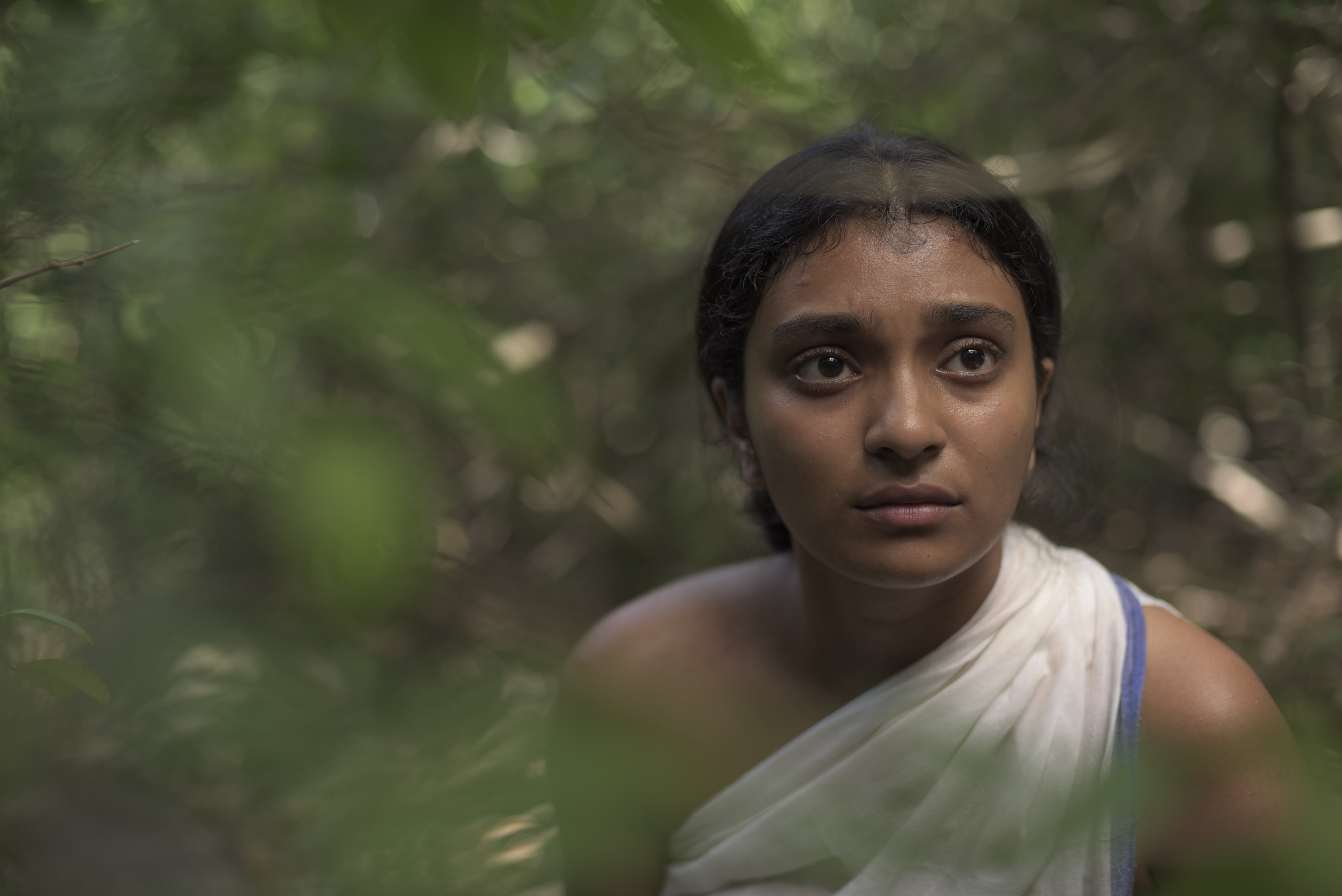
CinemaWorld: Speaking of the character of Tikiri, we have Dinara Punchihewa who at the time, you could say was a relatively new face in the industry and with this being Dinara’s first big film, she delivers a hauntingly amazing performance, in this role as Tikiri who barely speaks throughout the film. Was there a reason that you decided to go with a relatively new face in the industry, and what made Dinara suited for this challenging role?
Vithanage: It took so many years to get finance and cast for Gaadi. I have been trying to do this project for more than two decades. So, I have spoken to all the actresses in Sri Lanka, from the 1990s. Something didn’t, for some reason, I mean it didn’t materialise, and when we had the finance to go ahead with the production, then I came to know about Dinara through an assistant director and when I saw her face, I felt that she’s the right person. I judge my actors, the strength of their capacity by their eyes. So, because Dinara has the most expressive eyes and I thought, actually this character is like a child bride. She’s married to an elderly person and still, at the heart, she’s a child, and playing with the children and all. So, that I think, her physicality and her looks, I felt that it was right, and when I worked with her, during the rehearsals, I felt that she will, that not only by her looks, but she is very talented and she will sail through it and she did it.
CinemaWorld: As mentioned earlier, the role of Tikiri barely has any dialogues throughout this film so Dinara portrays a lot of this character through very emotive and bodily acting and like you said, through the eyes. Why did you choose to portray Tikiri this way?
Vithanage: Again, it was not a decision. As a writer, when I’m working with the material… I try to understand the truth behind every moment. Her silence is not for an effect because she doesn’t want to communicate with this Rodiya who has been forced upon her. (Rather) her silence is her weapon, to not communicate. And you know, for actors, the most difficult thing for them is to face the camera without dialogues, because… when they’re facing (the camera) without having any dialogues, we feel that they feel awkward on the inside. Why? Because when you don’t have to do anything and say anything it’s difficult to be in front of the camera and to immerse in the character that you’re playing, so it needs real talent.
CinemaWorld: So, now onto a question for Dinara herself. You know, an actress really needs to make a character her own and in your stunning portrayal of Tikiri, it was extremely evident just how well you embodied this character, Dinara. Tell us a little about how and what you did to portray Tikiri the way that you did?
Punchihewa: I think embodying the character happened with all the workshops that we did, all the rehearsals that we did. We rehearsed for about 6-7 months, we had shooting for about 3 months, so you know, you automatically become this character. I think firstly, what I did was, there was a lot of research that I did to learn about the women at that time and in terms of silence, I think women spoke less also and the way they behaved was very different from how we behave today. So, there were a lot of things, a lot of changes that I, you know, did to myself, in terms of, even physically, things like growing out my eyebrows or, you know things like that, physical changes that we had to do. But I think, it organically happened, and by the time we had to film a scene, I was already Tikiri because it just came naturally, we lived it and breathed it, so I think that’s how it happened.
CinemaWorld: So, I was going to ask you next about what your emotional journey with portraying a character like this was but I think you answered that by saying you know, you are the character. Do you want to explain a little bit more about the more emotional side of portraying the character?
Punchihewa: Yeah sure. So, I think personally (unintelligible), a couple of times, when you’re shooting for a long time, a long period like about 2 and a half months, you wake up as the character, you sleep as the character because you’re shooting long hours from 4 in the morning till 6pm-8pm in the evening, so you sleep, wake up and you’re doing the same thing over and over again. So, I think that was my journey and I look back and I’m very thankful and brings me so much joy to see how the character resonated with people and I think especially, as a woman, she broke a lot of barriers, she broke a lot of boundaries, even an 1814 story, is so relevant to today, and I’m very grateful for the opportunity.
CinemaWorld: Mr. Prasanna did say that for Tikiri’s silence is her weapon, I think that’s both cryptic but a very beautiful way to put it because there’s so much emotion hidden beneath the silence. How do you portray so many emotions amidst the silence? For instance, what are you going through, what are you thinking about, how are you feeling as you are embodying Tikiri, also because the environment in the wilderness is so loud. As Tikiri, as yourself, how do you navigate that?
Punchihewa: Um yeah, that’s very interesting. I think personally, I feel the character and I feel the emotions in my heart, and I think when you feel it in your heart, it’s very easy to show from your body and your facial movements and your eyes. So, it’s just about being very true to yourself and I think, as a person also, I think I’m quite a patient person, so I’m very good at giving silent treatment to people…(laughs)…so I think, even in this character it just felt very easy to do. But, also, we did a lot of prep, we did A LOT of prep, so when you do that kind of prep, when you’re already in character, it just shows through your eyes and it’s just about reacting. You know, your co-actor will do something and you just have to react to it and it just happens so naturally. I hope that answered your question.
CinemaWorld: Yes and, going to go back to Mr. Prasanna, with the film being made in 2019, making it almost 5 years old now, what do you think is the significance of this film today? As we know, when it was released, the film was a box-office hit in Sri Lanka, and had a very positive reception by Sri Lankan audiences. What do you think the positive reception reflects about the Sri Lankan film audiences and Sri Lankan attitudes in general today?
Vithanage: Thank you for the question because it’s not only Sri Lankan audiences, we are making a film for the (international) audience. Now, here the challenge was to make a film to let’s say, audiences in the USA or in China or Singapore, who don't know anything about Sri Lanka – not only the history, even the current Sri Lanka. So, I believe the strength of the film is its universality. The universality about longing for love, and respect, and a woman trying to keep her dignity. So, all these things, I think attributed to its international reach, wherever it was shown, at the festivals and in Sri Lanka. So, I believe… even if you don’t know anything about the history and Sri Lankan culture, this film, I think, will give you a glimpse of Sri Lankan culture during the 19th century and it will leave something that is valuable and connected with the current politics and current, you know, state that we are all living in because whatever the circumstance, I think, there is still space for love and respect and dignity in our hearts.
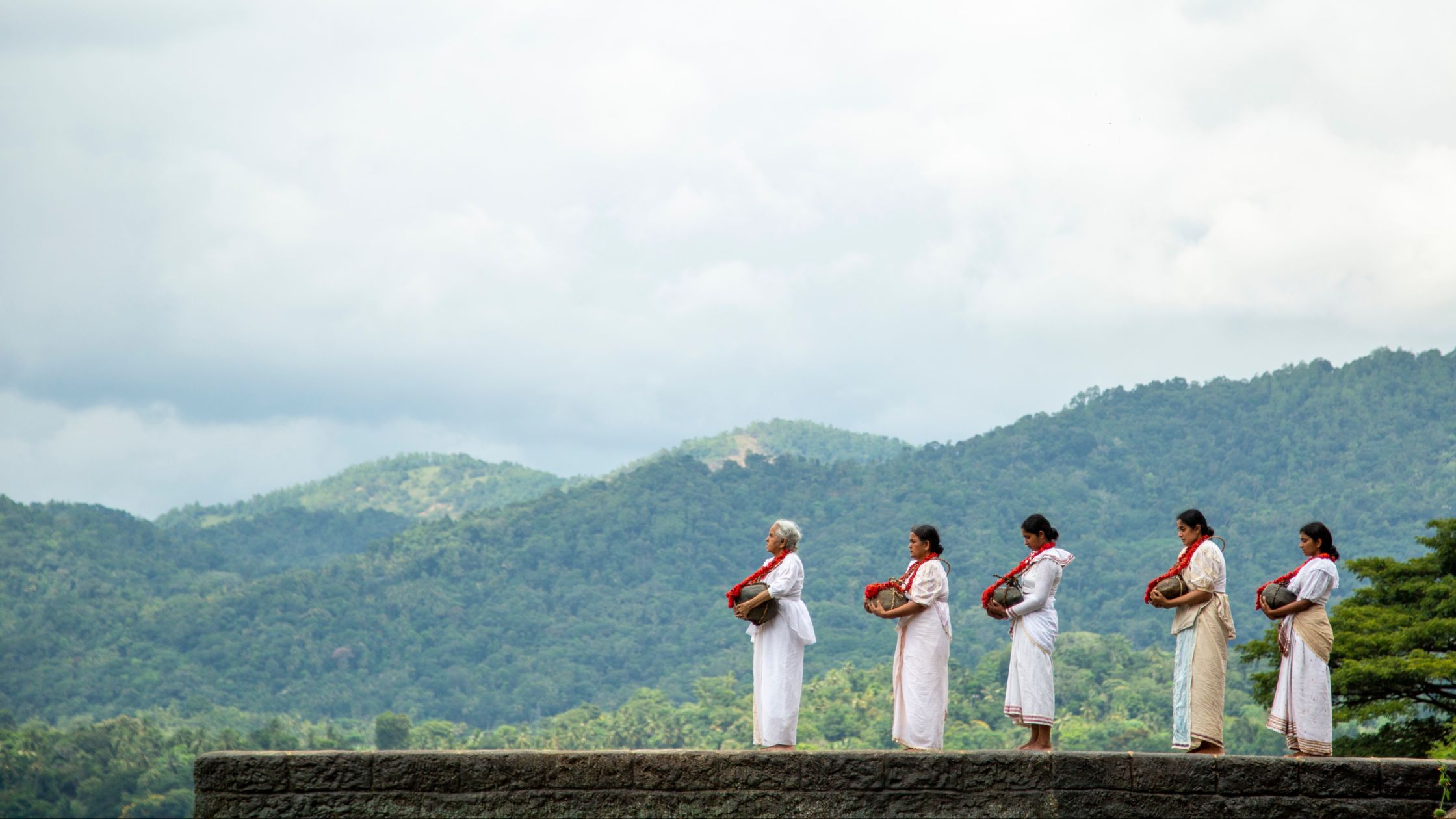
Challenges and Triumphs During Filming
CinemaWorld: Very much so. You also mentioned in another interview that Gaadi was one of your most challenging productions of the 9 films that you’ve directed before. So, could you share with us a little bit more about what you faced in the process of making the film?
Prasanna: Challenging in two aspects. One, the production aspect because you have to be truthful and you have to be sincere to the times that these characters lived, without, you know, making it… because I have seen a lot of historical films arousing nationalism… My challenge was whether I could bring out certain tropes that have not been told by Sri Lankan politicians and the mainstream media, so that was one challenge. And the other challenge as I started saying, was the production – whether I’d be able to produce that era authentically, so that’s why always a historical film is challenging, so those are the two things.
CinemaWorld: Having mentioned that this project has been in the making for two decades, how different would it have been if it was made in the 90s, versus if it were made right now? What do you think the biggest differences would be, maybe in terms of the audience acceptance or…?
Vithanage: I would have delivered the same message but it would have been immature. Why immature? Because I said that the most important thing, whatever the audience feels or whatever we communicate, whatever the sentiments that we want to create, it should come from the beats of the character, the development of the character. So, in the 90s I had an idea but the idea, let’s say, it was not fully baked. It was a half-baked idea. But, during the time and over the passing years, I have been able to build the story in a much more… trying to understand each beat of these two characters, rather than delivering a statement.
CinemaWorld: What do you think is the biggest lesson you’ve learned from making Gaadi after such a long time?
Vithanage: Why are we making films? Because we, let’s say, don’t accept the current state of the times we live in, the human condition. So, it’s a painful thing. I gave an answer earlier also, about identity, so that is the most challenging thing, when a country like Sri Lanka, which has many ethnic groups and many religious identities, when these identities and the people are demarcated and polarised by the politicians of Sri Lanka, on ethnic and religious lines, it’s always a challenge for a filmmaker to come up with the truth, and say, “No, the most important thing is humanity.”
CinemaWorld: I think it’s really lovely how you managed to portray not only the growth of the way you build your story but also the growth of yourself as a filmmaker. As for you Dinara, what has Tikiri taught you in those five years from 2019?
Punchihewa: The biggest thing that I’ve understood is that… it was (Tikiri’s) journey and it was what she made of her life at the end, and it was not something she was born with and she goes from having “everything” to having “nothing”, but in that having nothing she got a lot of love and she realised that you know, all of these things are not in the caste that you are born to, but what you make of your life and I think that’s a really strong message for women, even today because I know the caste system is still prevalent in certain areas in Sri Lanka and if you take South Asian countries, it is still very much there. So, I think it’s a good message to society, it also enlightened a lot of people about our haunting history, and it’s good that films like this are made just to teach people. If you’re not going to take anything else away from the film, at least you know what our dark history has been and you know, we can learn from this. So, I think this is what Tikiri has taught me and in the last 5 years, which flew by very, very fast, I think it’s also taught me that strong female characters that push boundaries will always remain in people’s hearts.
CinemaWorld: I think you’ve said it really well. At CinemaWorld, we are trying to bring this really beautiful cultural tale with such a powerful and lovely message beyond Sri Lanka and to international audiences, so, a question for both Mr. Prasanna and Dinara: what do you think Gaadi has in its unique storytelling to allow it to travel to so many film festivals around the world and be so well received?
Vithanage: That’s where the language of cinema comes in. How you’re going to tell the story using the visual language is the most important thing in cinema because visual language is a universal language. Image is a universal language… So, I mean, it was a challenge to tell that story visually, visually meaning without giving statements or through dialogues… I know that very few people will know about Sri Lankan history and we cannot ask them to go and study the history before watching the film, or after watching the film. So, that was the challenge and so, what I did for 30 years was to make it more visual. I was writing the script to tell the story more visually and more emotionally, I worked for that for 30 years from the inception of this storyline. I hope that that’s one of the strengths of the film and (the fact that) it travelled to all the continents, except Africa, that tells the story of the… power of the visual language.
CinemaWorld: Yeah, I certainly agree. I think Gaadi was really visually captivating and even without dialogue it was so, there was so much emotion and story translated and conveyed to the audience. You’ve come a long way as a veteran filmmaker and what is a key piece of advice you’d give to aspiring filmmakers, both in Sri Lanka and beyond?
Vithanage: Yes, I think I make it very short by saying – be truthful to the world that you live and I think it’s always better when you read a lot. I mean, not only do you have to watch current films but from the silent era to the current day. And you know, a filmmaker like Martin Scorsese, I mean, he has the knowledge of every film, almost every film in the world. So there's a saying that he has opened most of the film cans... Not only from Kurosawa to Naruse from Japan, the Chinese filmmakers, and Eastern European filmmakers. To get how the masters and the previous filmmakers, or the filmmakers who used this medium before you, watch their movies, and that will be helpful. And you have to have strong convictions about what you are doing. Are you doing it for money? Are you doing it to get personal glory? Or do you have any, more than that, do you have any strong passionate feelings towards the subject? If you are very passionate about that subject, if you feel that no one is telling this story, so I should tell this story – then do the film. Otherwise, don’t do that film.
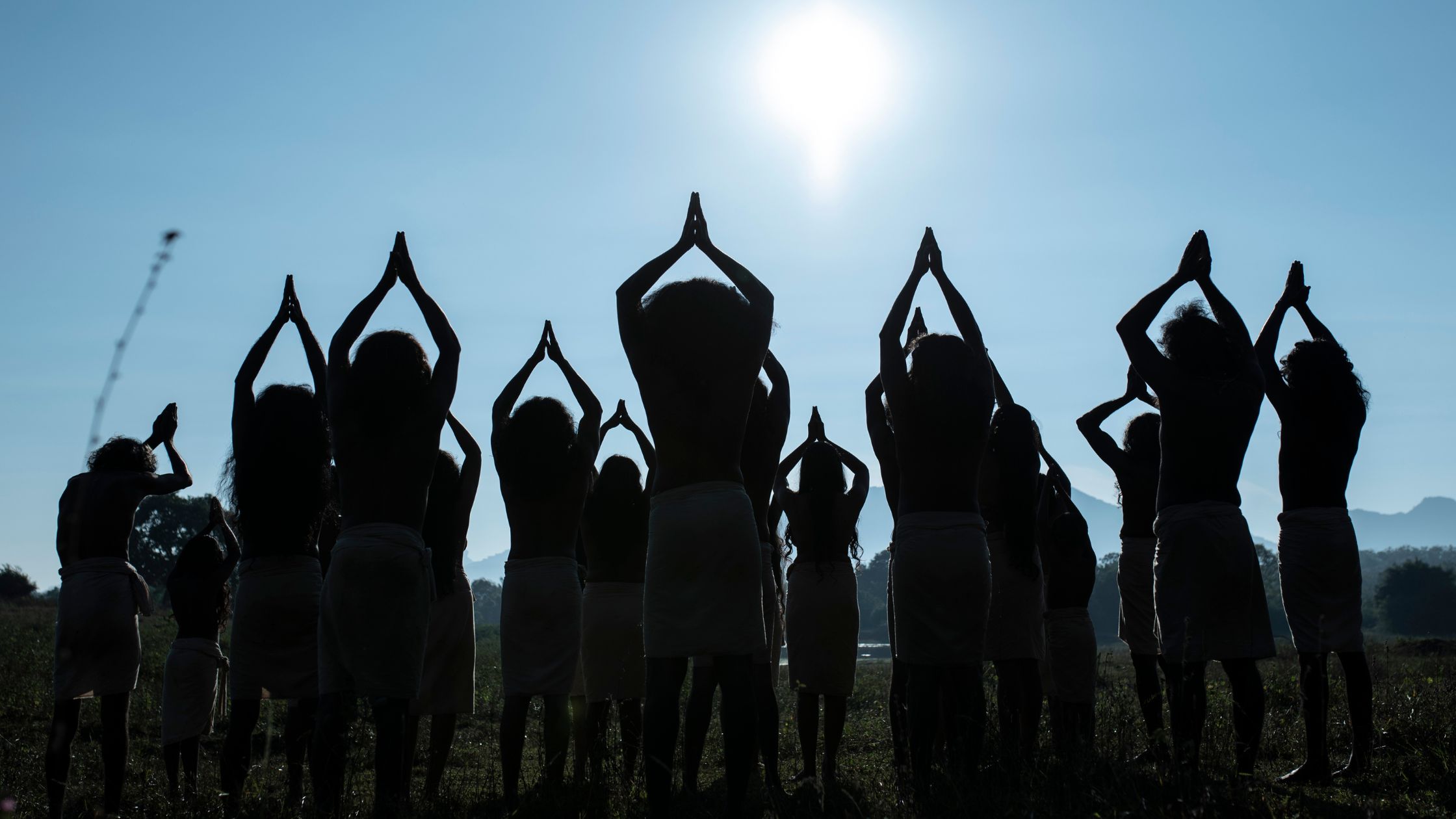
What Inspires You?
CinemaWorld: Then where do you think you draw inspiration from? Because you said to read widely, watch widely, from all the different authors and filmmakers. So where do you get your most creative inspiration from?
Vithanage: It’s literature and cinema both. I mean, literature because, still I am reading and re-reading, let’s say, 19th century Russian writers like Dostoevsky, Tolstoy, and I am still watching silent era films by Buster Keaton or Harold Lloyd... So, you find out when you watch these films that you’re not alone and how beautifully these filmmakers have used the medium, the film language before you and you feel like a little child in front of these masters, that’s where you get the inspiration to come up with more, you know they have mastered this medium and they have told these stories so beautifully, so can I do it? So, that’s the inspiration.
CinemaWorld: Do you have any favourite films perhaps, or even any favourite books?
Vithanage: Yes, yes, of course. I mean any film by John Ford, any film by Orson Welles and any film by Akira Kurosawa. I mean, there are so many others like Miloš Forman from Eastern Europe and Wong Kar Wai from Asia and Hou Hsiao-hsien, Jia Zhangke, and you know, I was more inspired by the 90s, the fifth-generation of Chinese filmmakers like Zhang Yimou and Chen Kai Ge. I mean they are the two filmmakers who introduced Asian cinema to the world, after Kurosawa and other Japanese filmmakers because they came up with a lot of truthful stories like To Live, and Red Beard, Yellow Earth, and they worked through hardships. I mean at that time, they didn’t have proper equipment or proper money, they were able to talk to and communicate with the world with their unique voices, and so I admire them.
CinemaWorld: Now, I’ll direct this question to Dinara. So, you’ve written, directed and acted in your first short film, Maala, which has also travelled to many film festivals. So, what is the difference between an actress and a director and do you have any preference towards each role?
Punchihewa: I definitely have a preference to acting at the moment, maybe one day when I’m more experienced and I’ve studied the craft a little bit more, maybe I’ll get into filmmaking and directing, more professionally and in a serious manner, but right now, I’m just focusing on acting. Yes, I did direct a short film but that doesn’t make me a filmmaker. I mean, it was just like a little introduction to you know, nipping behind the scenes, I also have worked in production, I’ve worked behind the scenes, so I think the biggest difference for me is that when you’re an artist and when you’re an actor, you have to just focus on only your character but when you’re a filmmaker or a director, you have the burden of the entire production in your hands. So, I think that’s a huge responsibility, like you asked, what do I prefer – definitely acting, at the moment.
CinemaWorld: I’m sure, you’ll somehow venture further into this and hopefully produce another film yourself. But yeah, so what about your inspirations? Do you read widely as well and do you have any favourite films/books that you draw your inspiration from?
Punchihewa: For me I think, I draw inspiration a lot from the people that I meet, and a lot from experiences. For example, recently I was at a visa office, trying to get my visa, and I saw an old couple trying to give their papers in and the visa counter person was very rude and I actually thought to myself, you know, this could be a scene in a film, you know, how somebody so helpless just needs some help and so I ended up going and helping them or whatever, but you know, the point is I find inspiration in a lot of real-life incidents that happen to me and things that I see and things that I hear. Obviously, I watch a lot of films and I mean, one of my favourite films is A Separation. Um, I recently watched, I haven’t had time to watch any films at the moment for the past three months, my life has changed a little bit because I’ve just had a baby so I haven’t had much time but trying to watch a few series on Netflix and things. Recently, I’ve started watching Heeramandi by Sanjay Leela Bhansali, and I’m just, it was nice to see how certain things are so make-believe and so out of reality and that is also a genre of film. You know, some films take you out of reality a little bit. So, yes, definitely draw my inspiration from all these experiences and definitely from travel and meeting people from all over.
CinemaWorld: Are there any upcoming projects for the both of you, Dinara and Mr. Prasanna, whether it’s acting or directing?
Punchihewa: I am acting in a documentary film in a couple of months, so we’re in pre-production for that and I have two films that I’ve shot for that are releasing hopefully this year, end of this year.
Vithanage: And my new film, Paradise, it got released on the 28th of June worldwide, and it’s running at the moment, in Sri Lanka and many other countries. So, I’m involved in promoting the film at the moment and I’m working on another story idea and I hope to, I mean I’ll be able to work on the script and start shooting by next year January or February.
—
Catch Gaadi: Children Of The Sun on CinemaWorld this August!
Alongside this empowering Sri Lankan historical drama, CinemaWorld is also showcasing the touching drama Confetti (2021) by Chinese filmmaker, Ann Hu, which sheds light on dyslexia and the struggles experienced by Asian-American immigrants, as well as the Japanese psychological-thriller Intimate Stranger (2021) by Mayu Nakamura. Check out our exclusive interviews with these acclaimed Asian filmmakers on our blog page.
—
For more remarkable international films, subscribe to us on CinemaWorld today.
Be the first in line for the behind the scene insights with acclaimed directors and exclusive Asian premieres of award-winning international films or box-office hits, join our community of film lovers now!
